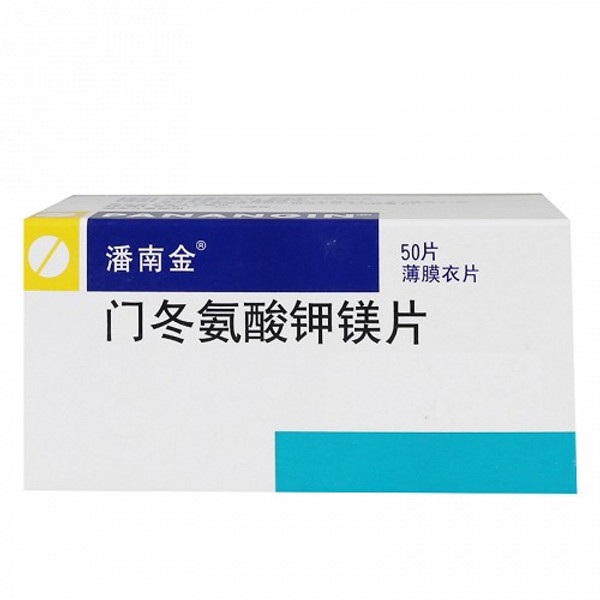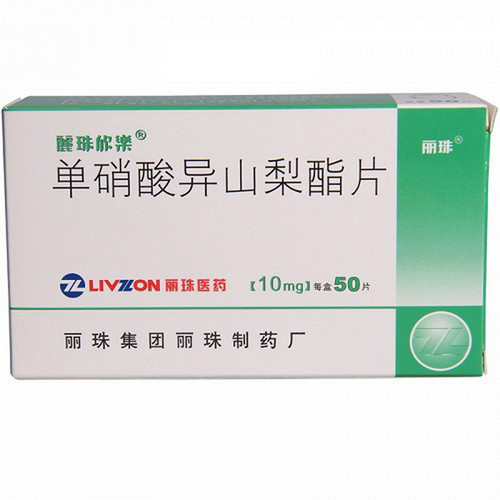Product Overview
[Drug Name]
Generic Name: Potassium Magnesium Aspartate Tablets
Trade Name: Pan Nan Jin
English Name: MenDongAnSuanJiaMeiPian (PanNanJin)
Chinese Pinyin: MenDongAnSuanJiaMeiPian (PanNanJin)
[Ingredients]
Each tablet contains 158 mg of potassium aspartate (C4H6NO4K) and 140 mg of magnesium aspartate [(C4H6NO4)2Mg].
[Properties]
This product is a film-coated tablet that appears white after removal of the coating.
[Indications]
Electrolyte supplement. It can be used as an adjunctive treatment for hypokalemia, arrhythmias (primarily ventricular arrhythmias) caused by digitalis poisoning, and sequelae of myocarditis, congestive heart failure, and myocardial infarction.
[Dosage and Administration]
Take after meals. The typical dosage is 1 to 2 tablets three times daily. The dose can be increased to 3 tablets three times daily depending on the patient's condition.
[Adverse Reactions]
Nausea may occur occasionally, but resolves upon discontinuation of the drug.
[Contraindications]
This medication is contraindicated in patients with hyperkalemia, hypermagnesemia, severe renal dysfunction, and severe atrioventricular block.
[Precautions]
This medication should not be used in combination with potassium-sparing diuretics.
[Use in Special Populations]
Precautions for children: Not yet available.
Precautions for pregnancy and lactation: Not yet available.
Precautions for the elderly: For elderly patients using Pananjin (potassium magnesium aspartate) tablets, the dosage remains unchanged.
[Drug Interactions]
This medication should not be used in combination with potassium-sparing diuretics.
[Pharmacology]
1. Pharmacology: Aspartic acid (Asp), also known as aspartic acid, contains two carboxyl groups and one amino group. It is an acidic amino acid and is widely present in all proteins. Aspartic acid is a precursor of oxaloacetate and plays an important role in the tricarboxylic acid cycle, the ornithine cycle, and nucleotide synthesis. It has a strong affinity for cells and acts as a carrier for potassium and magnesium ions to enter the cytoplasm and mitochondria, maintaining normal excitability and internal stability in nerve tissue, myocardium, and smooth muscle cells. It transports electrolytes to the myocardium, promoting myocyte depolarization and maintaining myocardial contractility. It also reduces myocardial oxygen consumption, offering a protective effect against hypoxia caused by coronary circulatory disorders. Aspartic acid participates in the ornithine cycle, promoting urea production, reducing blood ammonia and carbon dioxide levels, and enhancing liver function. 2. Toxicology: This product has minimal toxicity. Mice fed 2g (kg/day) showed no toxic effects for 6 months, and mice fed 400 times the adult dose did not die.
[Storage]
Store in a dry, light-proof, sealed container.
[Specifications]
(0.140g + 0.158g)*50s
[Packaging]
White polyethylene bottle, 50 tablets/bottle.
[Validity Period]
60 Months
[Approval Number]
HJ20130595
[Manufacturer]
Gedeon Richter Plc.








